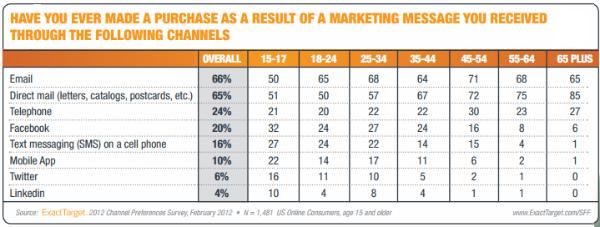A thin Reuters survey says 34% of people THINK they’re using Facebook less than six months ago, but Nielsen DATA shows usage is up 18 minutes to seven hours nine minutes per month per user in that time span. Meanwhile, Reuters says four out of five people THINK they’ve never bought something based on social network ads or friend recommendations, but that means a full 20% believe they have, and the rest were likely subtly influenced to prefer one brand over another.
In the end, deducing facts about 900 million people based on the self-reported survey results of 800 people is shortsighted, and Reuters’ framing to signal Facebook’s demise is sensational. There are plenty of questions for Facebook’s business model, especially how it will make more money on smaller mobile screens. But people are not abandoning Facebook, and it has 16 billion IPO dollars-worth of runway to make itself more useful for marketers.
Not everything is not peachy-keen in Facebook world. The social network took a big hit to its public image from its shaky IPO as some people though it conned investors by setting such a high price.
However, NASDAQ is partly to blame. Also, the average person surveyed don’t realize that Facebook’s share price falling after the IPO means it was in some ways a huge win for the company since it raised tons of money rather than serving the banks a big overnight pay-day. But regardless, public perception is down, as Reuters’ survey showed about 44 percent of respondents said the IPO “made them less favorable toward Facebook”. That’s a solid stat because it’s asking about people’s opinions.

Self-reported surveys don’t work so well when you’re asking people what they did, not what they think, though. That’s because of something called the social desirability bias (trust me, I’m a sociologist) that leads people to answer questions in ways that shed them in a positive light, as well as a bias to report one’s own behavior as they wish it was. In this case, people view Facebook as boring or unproductive, feel that others find it slothful, wish they used it less, and then report that they are decreasing usage.
But Nielsen data shows Facebook usage increased in the US from 7 hours 9 minutes a month in March to 7 hours 10 minutes a month in April, and that’s up from 6 hours 51 minutes in December 2011 which contradicts the Reuters survey results claiming a decrease in usage over the last six months.
As the Summer rolls around, and college students leave school Facebook’s engagement numbers could continue to stagnate or even slip a little, but there’s no sign users are “tuning it out” en masse as CNET’s headline based on the Reuters survey suggests. Facebook still has to deal with its user base moving to mobile where there’s less room to show ads. But that’s a slow developing trend, not a rapid exodus, and it’s not users abandoning Facebook, just changing where they access it from.
As for the survey of Facebook’s influence on purchases, “four out of five Facebook Inc users have never bought a product or service as a result of advertising or comments on the social network site” sure sounds bad, but that’s still a lot more than sway than text messaging, mobile apps, Twitter, or LinkedIn as the chart above from Marketings Profs shows
In fact, Facebook is just a few points behind the telephone in purchase influence, and is only significantly trumped by email, which has been a popular marketing medium for well over a decade, and direct mail, which has been around for over a hundred years. Most people have been advertised to through those mediums their whole lives, whereas only 100 million people in the world were on Facebook four years ago. And other studies like one by eMarketer shows that 33% of US female social network users have purchased based on Facebook recommendations.

That 20% is also so “low” because many advertisers are just warming up to Facebook, and many are seeing strong results. While GM backed out because it couldn’t get the home page takeovers and other intrusive ad formats it wanted, Facebook cites that across 18 well-run campaigns, advertisers were getting 3x returns on their spend.
But in the end, the Reuters survey fails to accurately assess Facebook’s influence on purchasing because people can’t accurately assess their own behavior. Facebook isn’t search. You’re aren’t always ready to buy when you see an ad on Facebook like when you see a sponsored link to an ecommerce page while searching for something you might purchase.
Instead, Facebook is becoming a home for institutional advertising. Considering people spend over seven hours a month glued to Facebook, they’re likely absorbing hundreds of sidebar ads, sponsored stories and recommendations from friends. Facebook will need to find new ways to boost revenues, but others companies are definitely making money thanks the social network whether their customers admit it or not.
[Image Credit: Billy Jury]
